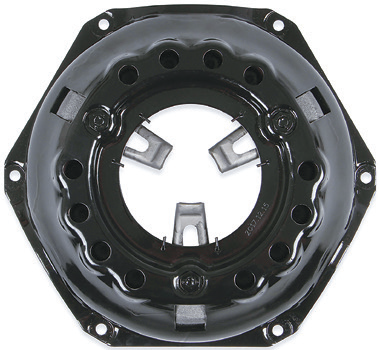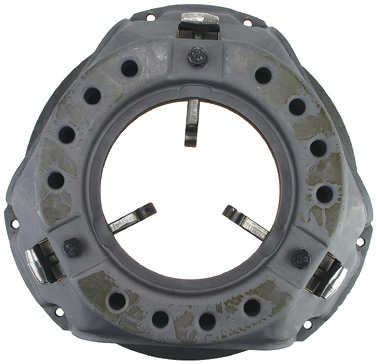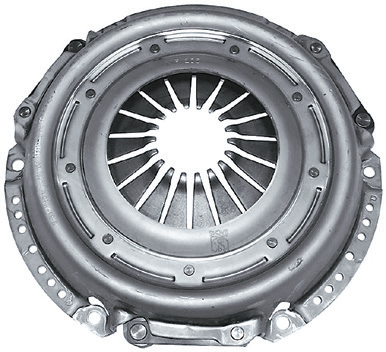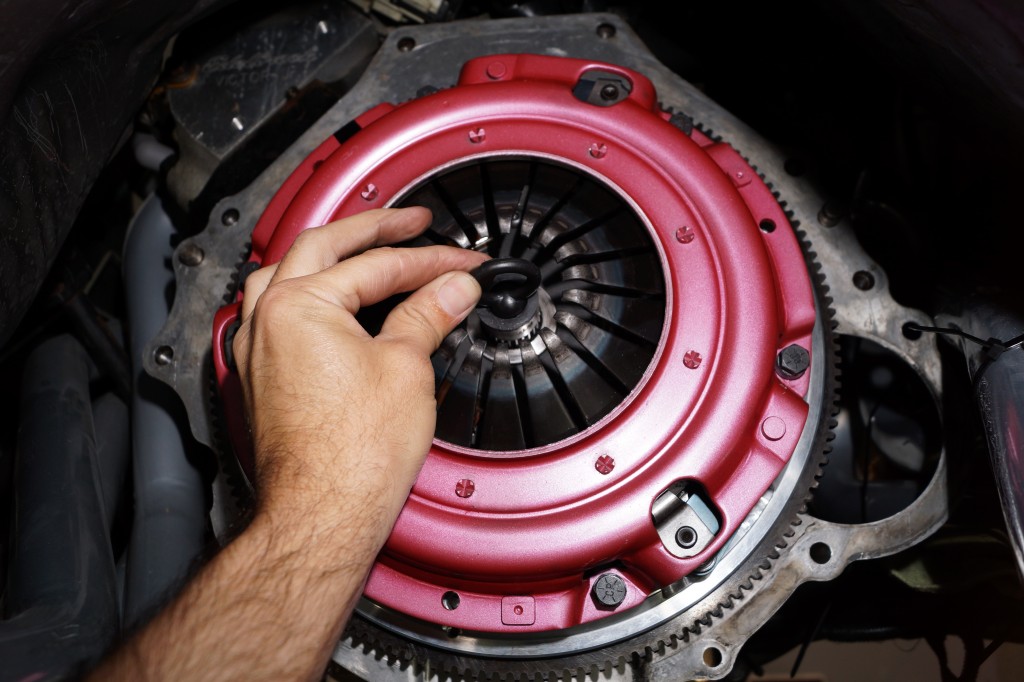A clutch pressure plate is a spring-loaded plate bolted to the engine’s flywheel. It applies clamping force to the clutch disc that is splined to the transmission input shaft.
When the clutch pedal is depressed, the throwout bearing is pushed (or pulled, in some applications) against the plate’s fingers, compressing the springs and releasing the clutch disc from the engine’s hold. When the clutch pedal is released, the clutch disc is squeezed tightly between the pressure plate and flywheel, engaging the transmission to the engine. This enables the engine to transfer power to the transmission during acceleration and gear changes.
Various pressure plate styles are available, depending on the make and model of your vehicle, so we’ll break down the three most common types of pressure plates you’ll come across.
3 Common Types of Pressure Plates
***
Borg & Beck Pressure Plates

Borg and Beck pressure plates are commonly found on older GM, Mopar, and some AMC models. These pressure plates use multiple coil springs actuated by three one inch wide levers to engage and disengage the clutch. Borg and Beck pressure plates clamp the disc with a fixed amount of pressure.
***
Long Pressure Plates

The Long-style pressure plate is commonly found in older Ford muscle cars and trucks, and is the basis for many modern drag race clutches. It has three levers that actuate multiple coil springs to engage and disengage the clutch. The levers are weighted and provide additional centrifugal force as rpm increases. This adds static pressure to the coil springs and helps the clutch hold more power.
***
Diaphragm Pressure Plates

A diaphragm-style pressure plate is commonly found in late model vehicles and as an upgrade for both previous types we just discussed. The diaphragm pressure plate utilizes a one-piece Belleville (or diaphragm) spring. The Belleville spring allows for a relatively light pedal effort and smoother engagement compared to both the Borg and Beck and Long type pressure plates.
***


Original GM 10″ diaphragm pressure plates , standard duty seemed to work the best and could last INDEFINITELY..As did the the Borg Warner 63 Corvette standard duty 10″ diaphragm replacement for a stock 327..Did Borg Warner supply GM pressure plates ?